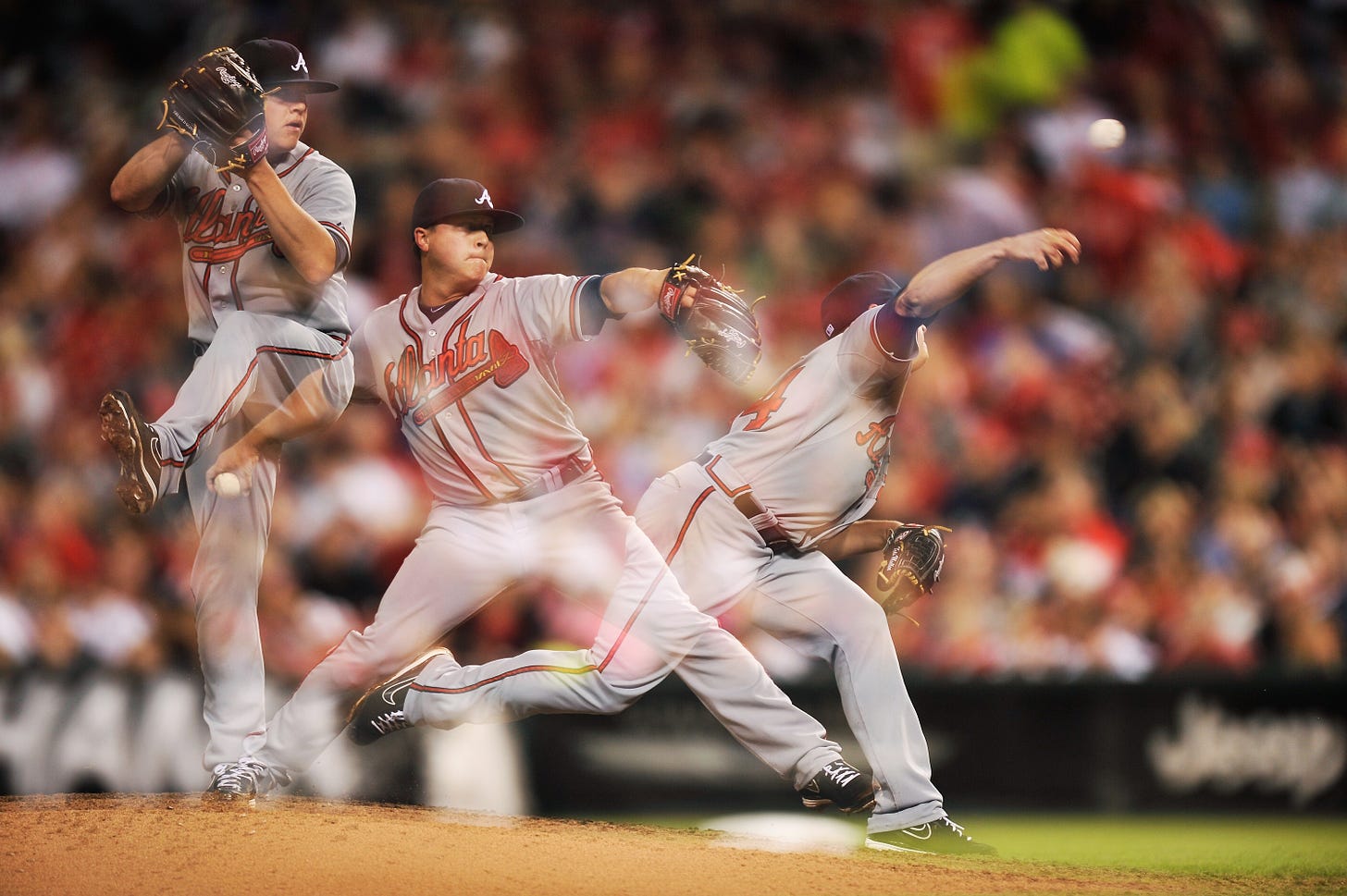
The MLB Is Like a Drug Cartel Trying to Kill Its Customers
Baseball's new "three batter minimum" rule is an abomination.

I don’t know if MLB executives spend much time in the company of successful drug dealers. But if they did, they would find that despite their superficial differences they have some things in common.
For instance, both are motivated by such greed that instead of contentedly minting money off of their pure product, they are compelled to squeeze the margins by cutting it, over and over, until what’s left is barely recognizable.
They would be able to compare notes over corporate structure and the merits of vertically integrated cartels, operating together to carve up their turf and defend it with soulless brutality.
They might swap stories of star employees more famous for their crimes than their job performance—Bonds and A-Fraud—and rogue crews so reckless that they brought the entire weight of the law down on everyone’s heads. (That would be you, Houston.)
They would certainly recognize a mutual contempt for their customers, whose welfare and actual desires come a distant second—or third, or fourth—to the pursuit of money and market share.
And they would absolutely be able to share a laugh at the expense of the junkies and rubes who keep lining up to fork over their cash for the next fix, no matter how much criminality and contempt they lace into their offerings.
On Wednesday, MLB announced its latest rule change, effective this year, which mandates that every pitcher who takes the mound must either face three batters or complete a half inning. Like virtually every innovation dreamed up by the demented technocrats on Park Avenue, this is something no one asked for, no one wanted, and serves no benefit to the teams, or the players, or the fans.
Never mind that it penalizes smaller dollar teams, or that games will be lost because of this change. Forget that it kills yet another outlet for strategy the game by hemming in the managers’ ability to square off in pitting relievers against pinch hitters in real time. Why would MLB care that it sounds the death knell for the careers of a cadre of leftie pitchers who have made careers as specialists? Or that it favors big-market teams who can afford deeper and stronger bullpens?
And, of course, what does it matter that it carves away yet another part of the in-game tension which is the soul of what brings people to the ballpark, year after year?
The MLB continues to apply its own brand of brutalism to the beautiful game: We now have signaled intentional walks, instant replay, limited mound visits, and a three-batter rule. The rationale for the change is that MLB wants to increase the pace of play which, the logic goes, will attract new fans. Both of these contentions are lies.
Pitchers are hardly ever yanked after facing only one or two batters—in all of 2019, this rule would only have affected 649 appearances. So the net effect on game time is negligible, at most. And when these one- and two-batter switches are utilized, it’s precisely because something interesting is happening in an important game. Which is precisely the kind of intentionally-paced drama that draws fans to baseball. It’s the kind of thrill that sports dominated by a clock can never equal.
No, the new rule is about TV. It always is.
Which means it’s about money. Which it always does. From broadcasting blackout zones to premium subscription fees—to say nothing of ticket prices—fans remain at the mercy of the MLB’s almost fetishistic need to gouge its customers.
If baseball was actually in decline, the league’s barbarities might be a little easier to swallow, but the MLB scored a record $10.7 billion in revenue last season. The idea that America’s oldest and most tradition-bound sport must relentlessly and cynically innovate to survive—while a middling team in a medium market can pay $330 million to a player as ball-achingly overrated as Bryce Harper—is insulting to the intelligence of the dullest bleacher creature.
We know better.
Some of us have tried to get our fix elsewhere—independent leagues have begun to make a comeback in parts of the country. But even in the independents, you aren’t safe from the relentless evil empire of ugly that is the big leagues. Last season, the Atlantic League took the MLB’s 30 pieces of silver and agreed to act as a dry run for robot umpires.
Which, like a remorseless pack of Terminators, are coming. Believe it.
Thanks to its antitrust exemption, hilariously premised on the idea that big league ball isn’t an interstate enterprise, the MLB has the game strapped to a gurney, plugged into life support as it carves out ever larger pieces of its heart for profit, like some ghoulish chopshop organ trafficker.
And it is only going to get worse.
Already, the league is publicly touting changes to the postseason for next year. In the relentless push to pander to TV execs, they are proposing more teams, more games, and a live special where the owners literally pick their own opponents.
Even Vince McMahon would look at this and say, “C’mon guys. . .”
At some point Major League Baseball’s greed will lead them to “fix” the product so much that it winds up killing their customer base.
As any self-respecting drug dealer will tell you, that’s just part of the business.









